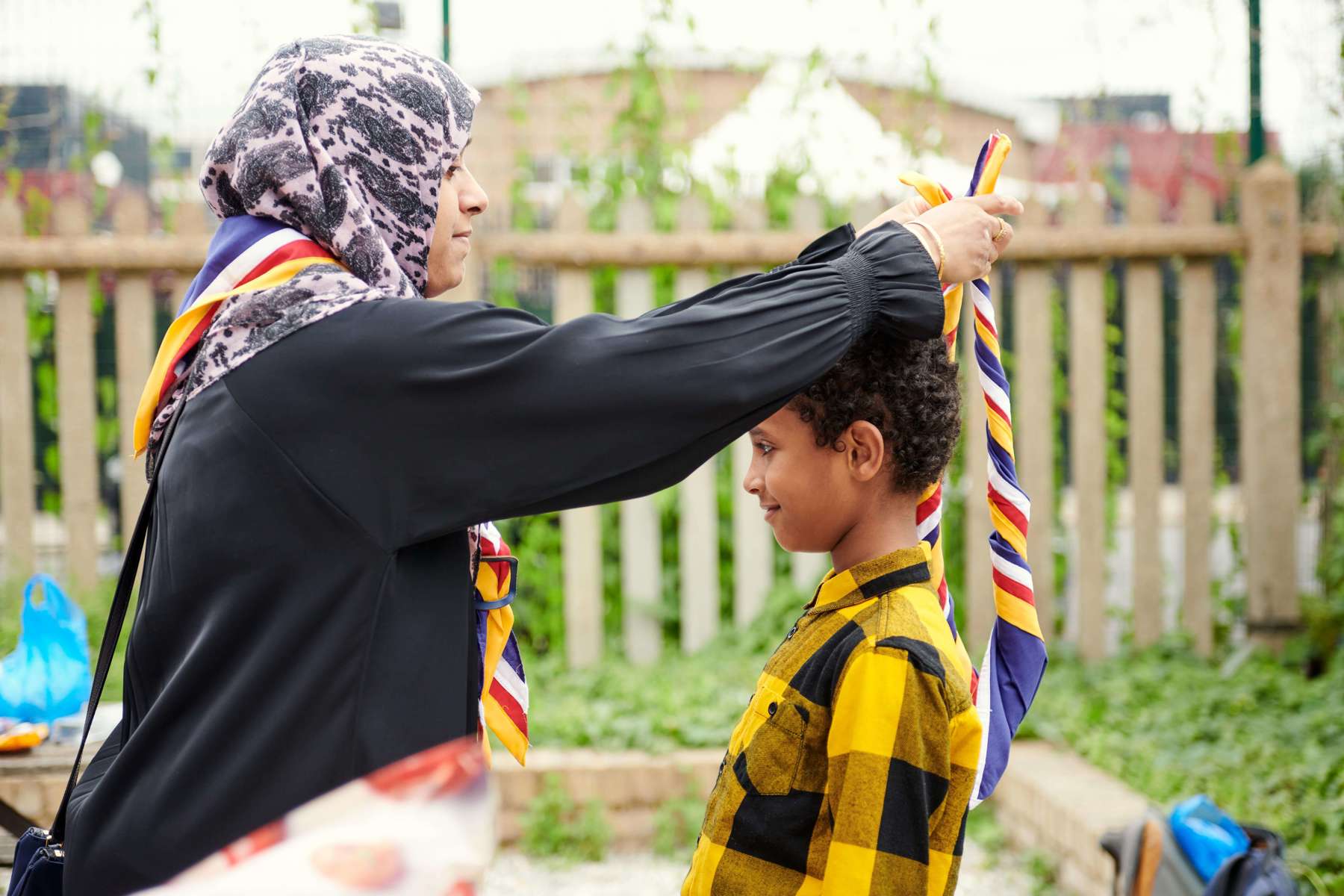Ayesha Karim, UK Youth Commissioner, chats to us about Islamophobia Awareness Month
Can you tell us a little about yourself?
My name’s Ayesha Karim, I’m 19 and studying engineering at university. I’m also the UK Youth Commissioner for Scouts, which is a role I’m very proud and excited to hold. I’ve been in Scouts since I was 6 years old and started at Beavers. I’m still involved in my local Scout group, and I volunteer whenever I can.
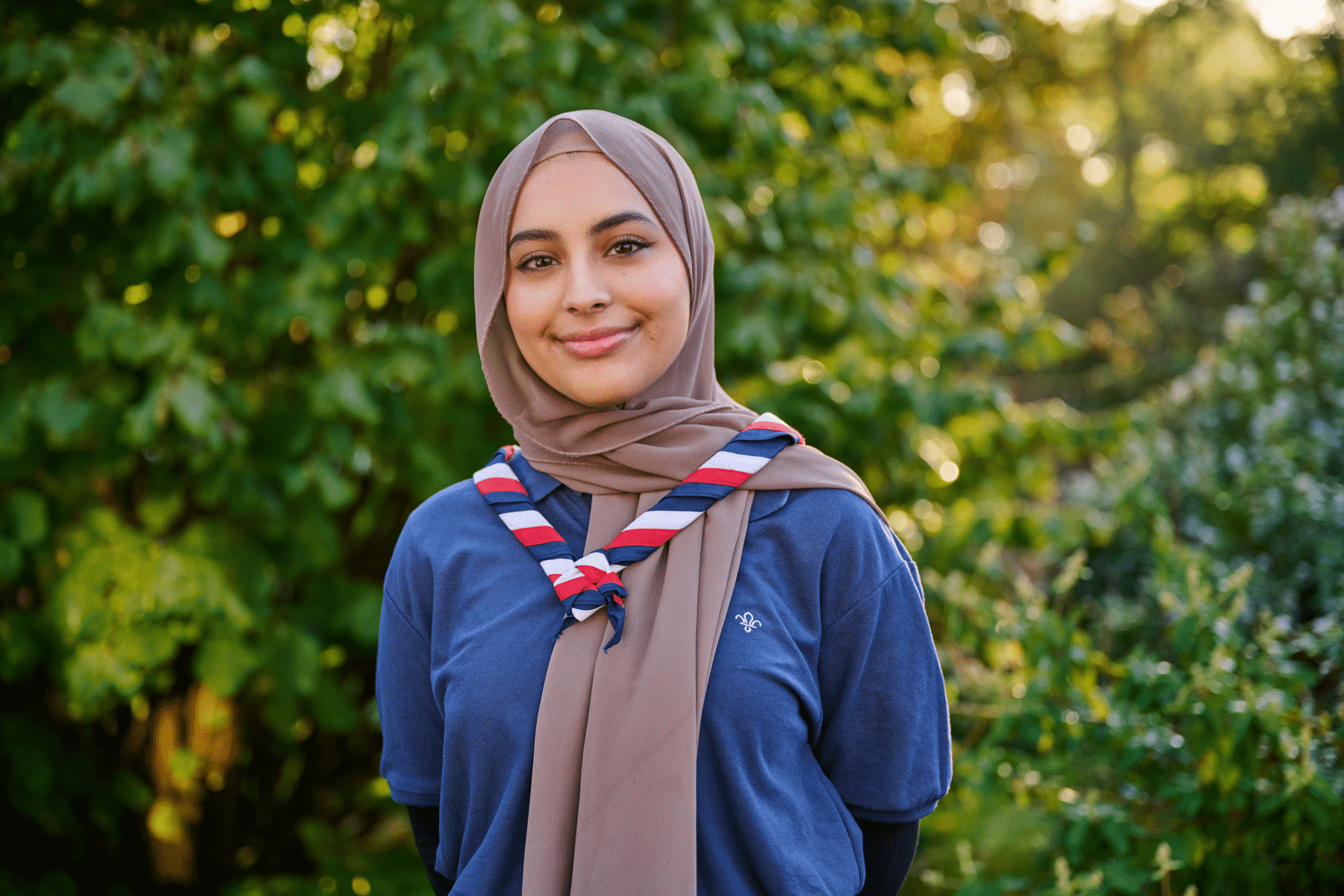
Why did you want to be the UK Youth Commissioner?
Truthfully, I didn’t know what a Youth Commissioner was until I heard of this role and then I discovered the huge impact that it can have in Scouts. It was an amazing way for me to stay connected to Scouts when my circumstances had changed for being involved in local Scouts, too.
We’ve fantastic youth voices across the country, including through our youth commissioners and young leaders in local areas. These young people are our volunteers of tomorrow, so we need to listen to them. We need more diverse, young voices to be heard. I’m excited to meet them and hear their amazing stories, ideas and impact.
Having been through the journey of Scouts, I’ve seen the value and impact it has for and on young people. I also see the value for young people’s voices to be heard in Scouts. My main motivation is for every area, every level, every nation to have youth voices heard and amplified.
What are your favourite or proudest memories of Scouts?
My fondest memories of Scouts are the friends, the camps and just the day-to-day meetings. They were so much fun. Scouts was one constant throughout my life, even if I changed schools, Scouts was always there, and I’d been with same people from 6 years old.
My proudest moment so far is achieving the role of UK Youth Commissioner. I remember the day that got the call, I was completely floored. I hadn’t been expecting it at all! I’m currently working towards my King’s Scout Award, too. I’ve got one expedition left, and I’m excited to achieve that.
How did Scouts help you?
The opportunities Scouts provides are fantastic and endless. How many young people our age that aren’t in Scouts can say they went camping by themselves at 14, have been on expeditions, travelled aboard with friends or gone hiking?
Scouts gave me a community. It was a safe space to meet like-minded people with shared experiences and of the same faith, but it wasn’t necessarily focused on my faith or religion. I’ve been able to meet people from all backgrounds, and it gave me confidence in myself and my beliefs.
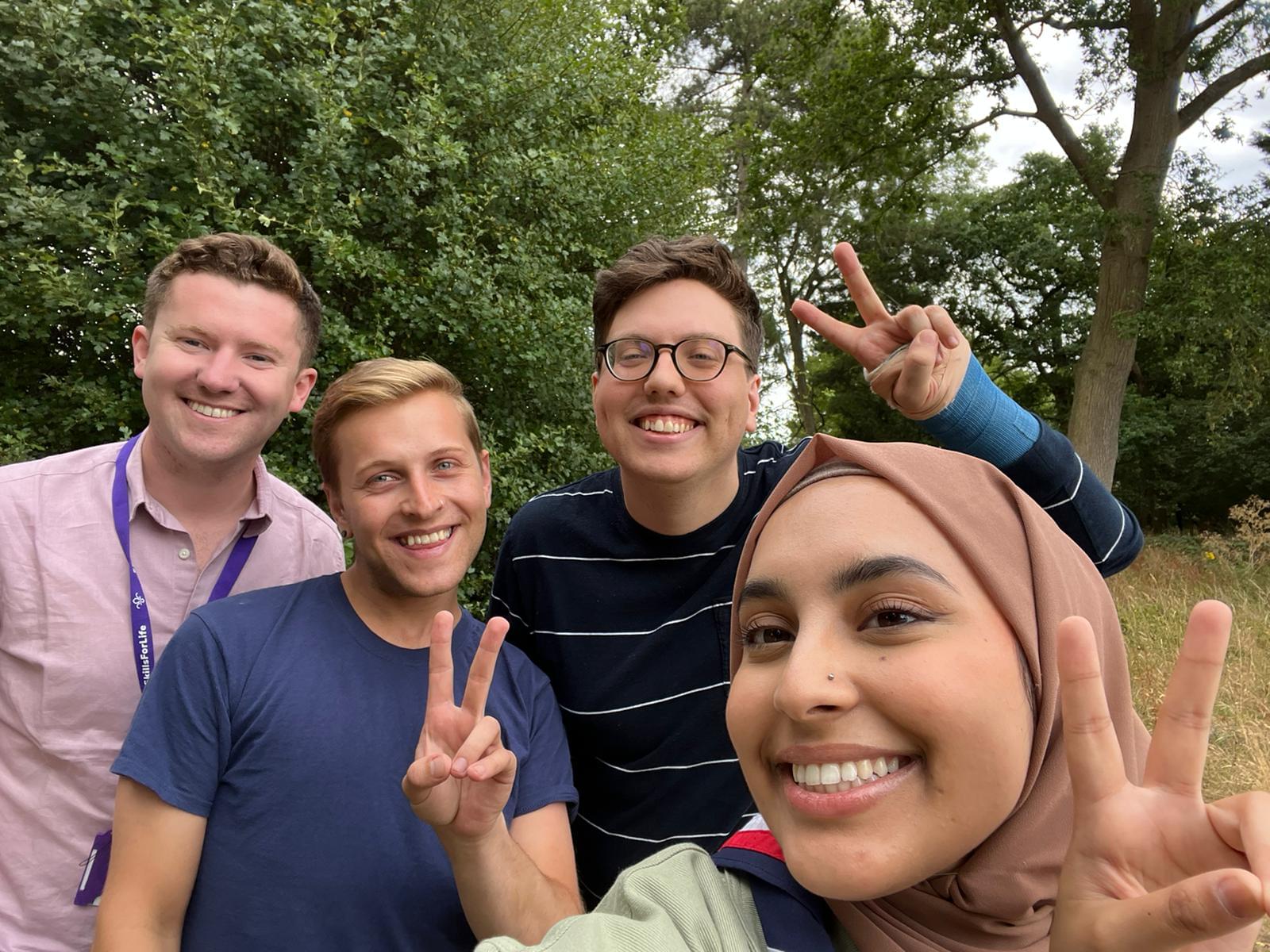
Can you tell us a little about the Muslim Scout Fellowship?
The Muslim Scout Fellowship (MSF) is a Scout Active Support Unit that brings predominantly Muslim groups within Scouts together across the country. The Muslim community within Scouts has grown massively and the MSF does an amazing job to bring people together.
Scouts gives people a chance to network, meet each other across the country, gives them shared experiences, and provides a supportive community and events. The MSF run a Camp in the summer, as well as the MSF Jamboree to bring international groups together, too. With the MSF, I went to Spain and had an Islamic tour of Spain, alongside our Scout activities.
It’s also worth noting that there’s plenty of Muslims in non-Muslim specific Scout groups, too. They’re not separate from the Scout Association. It was my personal choice to join an MSF group, as for me being part of a predominantly Muslim group made Scouts more comfortable and familiar to me.
It valued time for prayer and had greater awareness and understanding of Ramadan and fasting, and it could build activities around that. It made Scouts more tailored to the values and beliefs of Muslims, but we were still a very active part of the wide Scout community and district.
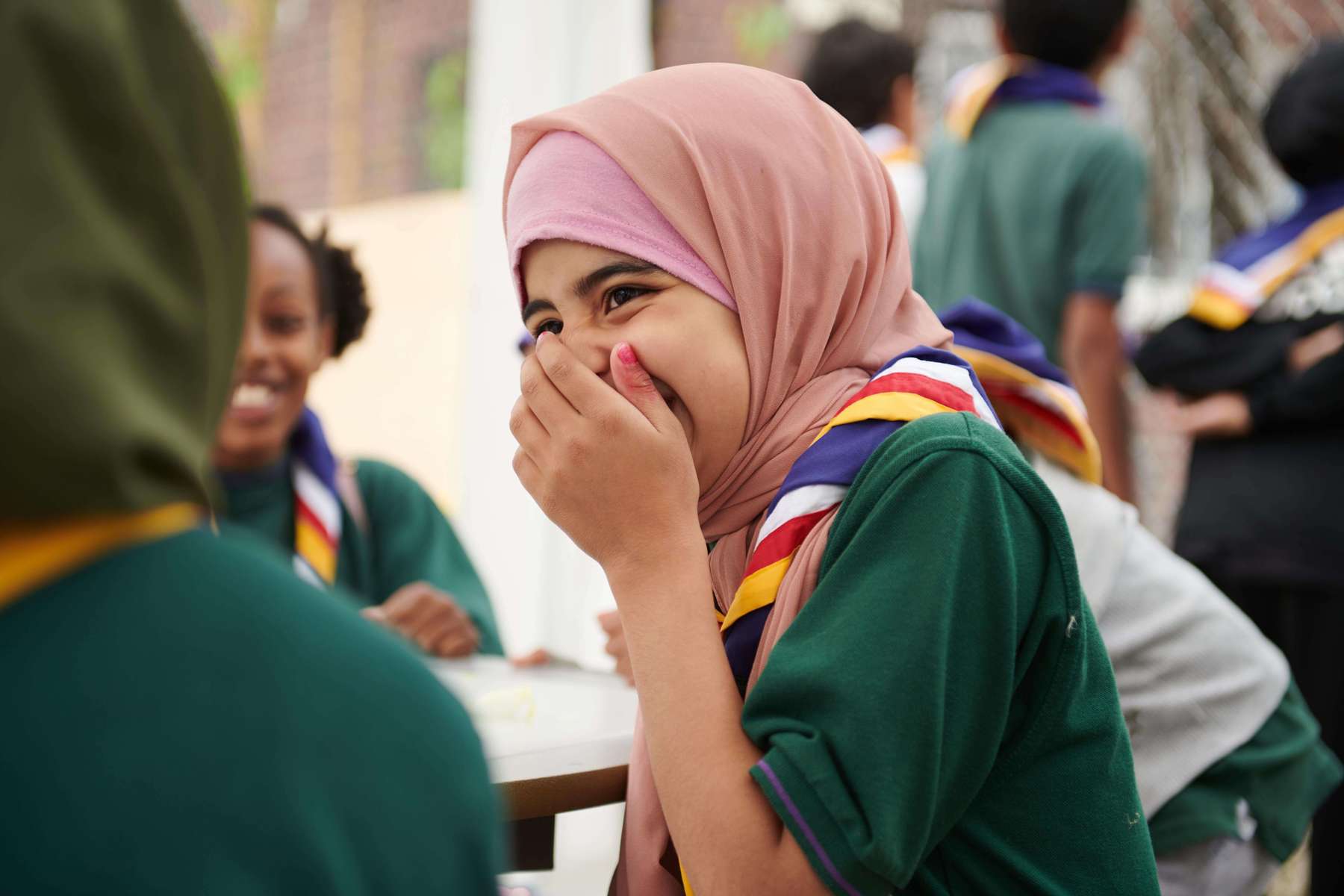
How has Islamophobia affected you?
There are still misunderstandings about how Islamophobia is experienced. It’s not just physical or verbal abuse, but it can also be ignorance or instances of indirect, subtle, or unintentional discrimination, such as crossing the road to avoid someone. It’s important to recognise that different Muslims experience it differently, too. As a woman who wears a headscarf, which is an obvious outward sign of my faith, I’ll have experienced it differently from other people.
At school, I felt the need to stand up for my own Muslim community and it was a big weight to carry on my shoulders at that age.
I’ve even had quite surprised reactions when I tell people I’m a Scout, as often they don’t realise how big the Muslim community is within Scouts. Stereotypes in the media have allowed people to develop preconceptions of what our beliefs and views are, so I’ve often felt the need to defend my point of view.
How do you think we can all ensure there’s no place for Islamophobia in Scouts?
Education’s the most important factor. Scouts is a wonderful place to learn as we’ve got lots of activities around Islam, inclusivity and acceptance, and learning about different faiths, as well as badges for World Faith and My Faith.
We should all be open to new opportunities and don’t be afraid to reach out in local communities, too. Use the badges or Scouts activities as an opportunity to contact places of worship and ask for a tour or invite speaker to come in.
The Muslim Scout Fellowship in UK is a positive, kind and wonderful community. Try to reach out to predominantly Muslim scout groups in your area, take the opportunity to learn, get together and share experiences. Invite them to have a joint meeting, to a Sports day or make sure they’re included in local events.
I’d encourage everyone to try to find out a little about Islam, what our beliefs and practices are, but it needs to be from sources produced or published by Muslim authors or researchers, or by speaking to Muslims, to avoid misinformation. The Muslim Scout Fellowship and BBC Bitesize are great places to start.
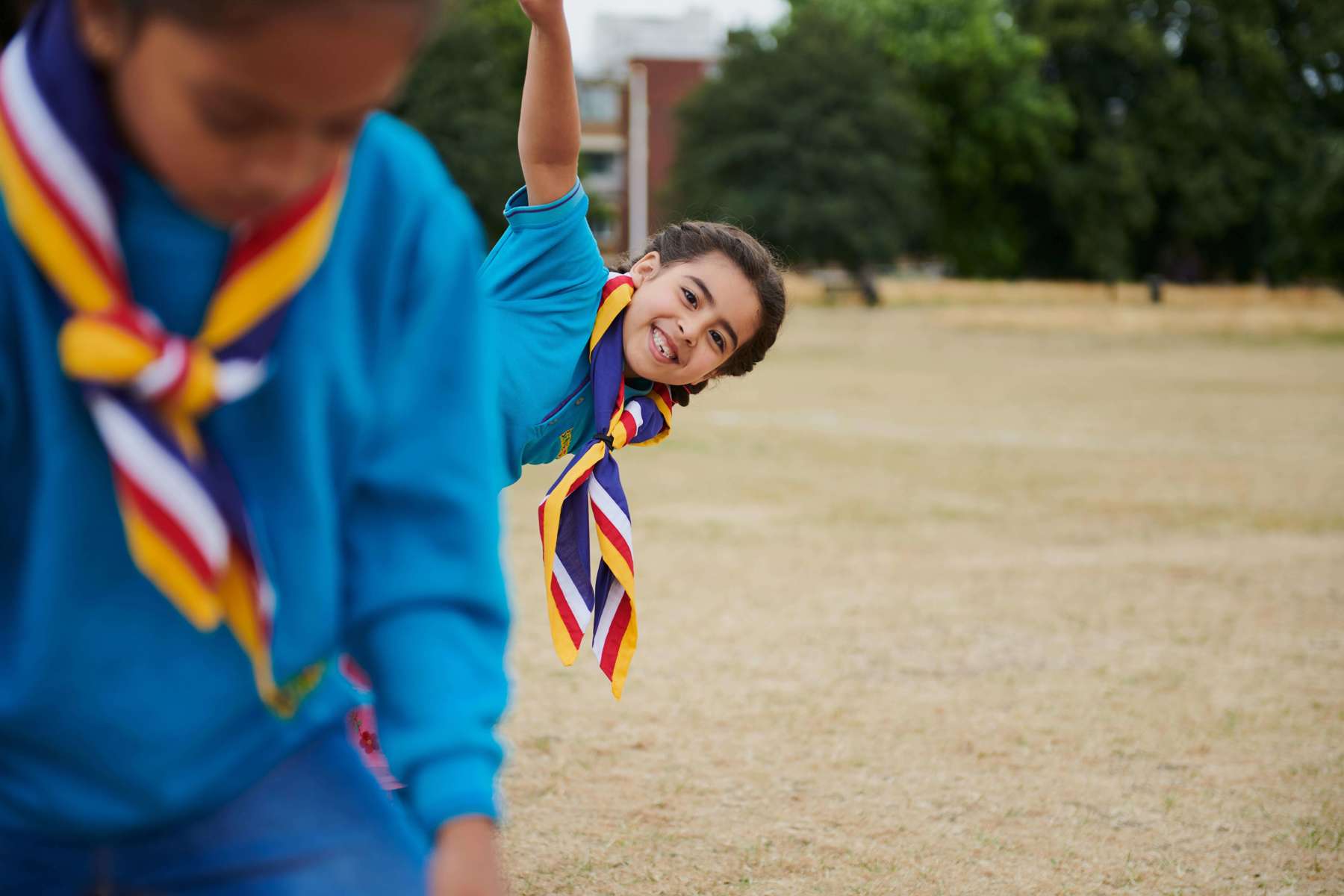
We’re an inclusive, values-based movement. Why does this encourage Muslim people to join Scouts?
There’s such a large population of Scouts who are Muslim across the world. The values of Scouts around respect, integrity, care and so on are so well aligned with Islam, which is why you see Muslim countries with such a huge population of Scouts. It’s such a good thing for young Muslims to get involved in.
I’m keen for the non-Muslim community to learn that’s what the Muslim community is all about. There’s no room for discrimination in any space, let alone in Scouts. Scouts gives people amazing opportunities, and it’s accessible to anyone regardless of faith or background.
Why should we talk about Islamophobia Awareness Month in Scouts?
We’ve got such a fantastic collection of young people, so Scouts is a great place to spark a discussion on global issues. I feel that social issues, such as Islamophobia, aren’t discussed enough in the UK and Scouts are always at the forefront of social change.
Therefore, if we can lead the discussions and spark conversations then we’ll be in the best place to support and welcome all members of any background, including from a Muslim background.
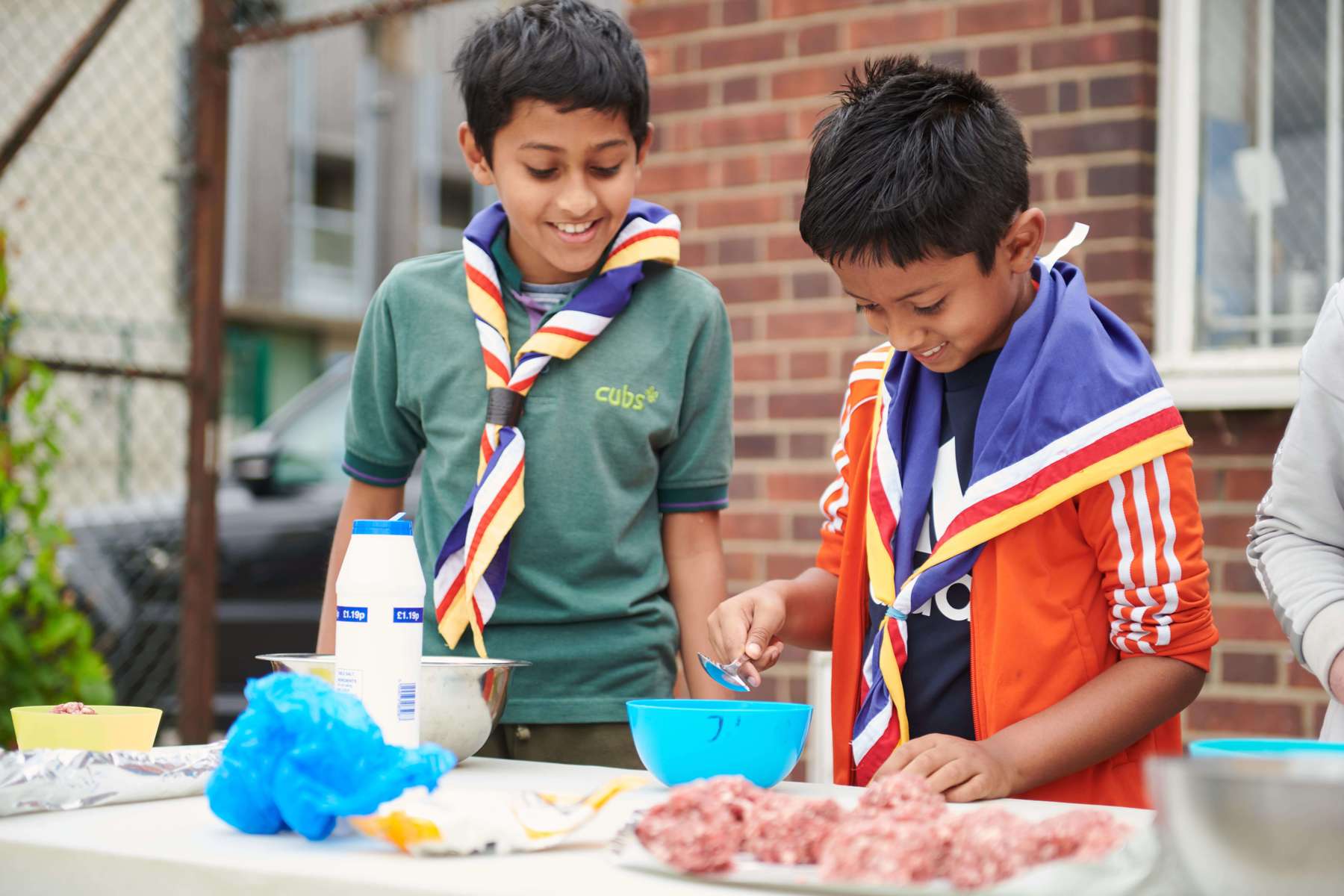
What pieces of advice would you give to someone who wants to create an inclusive section in Scouts?
I’d say to take every opportunity to educate yourself. If you’re involved in any Scout group, there’s always an opportunity to learn, do some more training or find out something new.
We shouldn’t be afraid to start conversations to allow young people to hear points of view, discuss the positivity of having different faiths and beliefs, learn about misconceptions and find out their ideas to tackle issues.
In the UK, we’ve such a diverse community and chance to meet people from different backgrounds. However, we need to recognise no two Muslims (or anyone else) have the same experiences, so we can’t presume or stereotype people.
People have different needs and ways to practice religion, so instead of presuming or making assumptions, we just need to ask and speak to them to see if there’s anything you can do to make them more comfortable or chat to parents and carers. Just like you would with anyone else with any other need.
